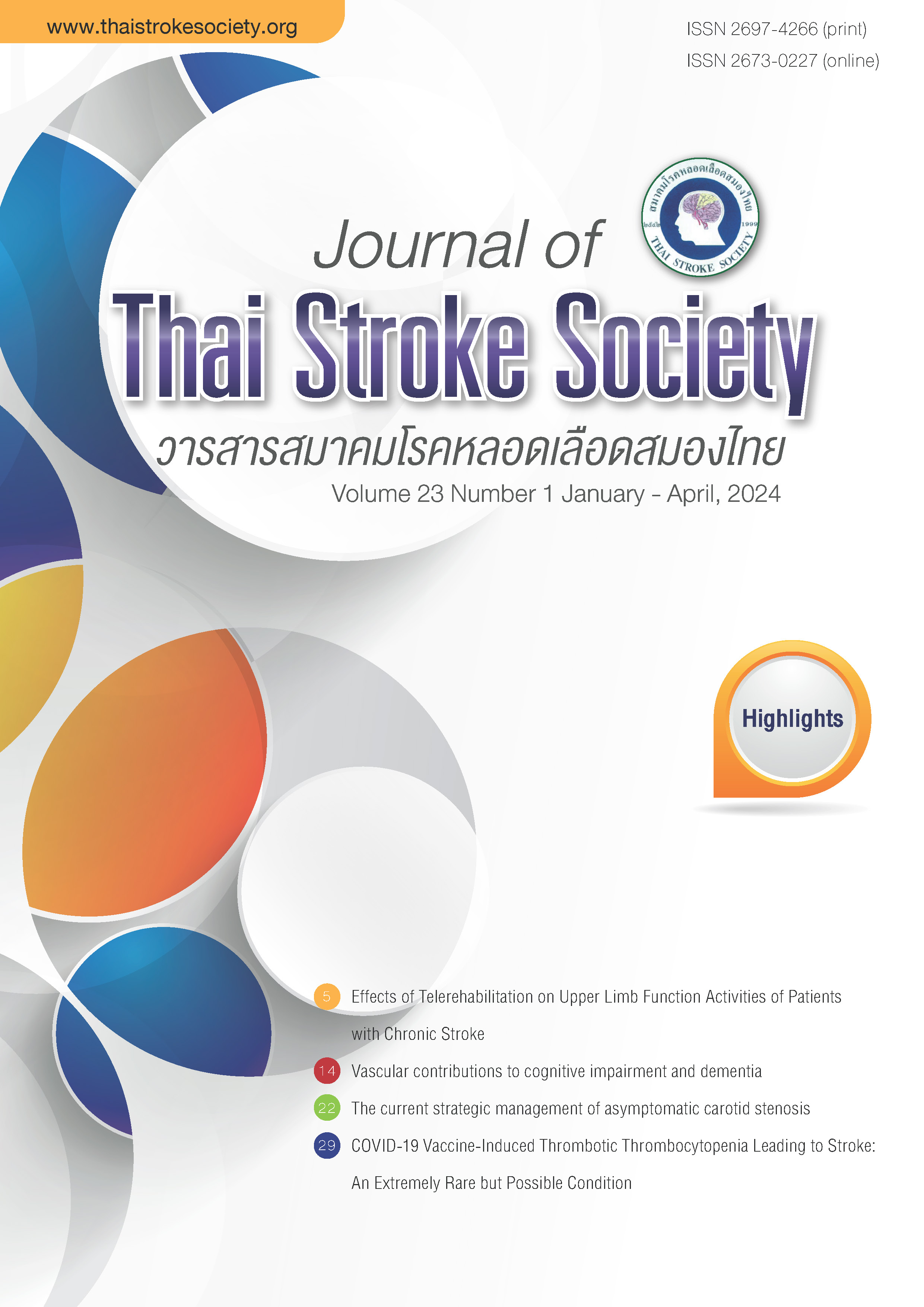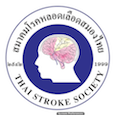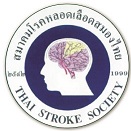Vascular contributions to cognitive impairment and dementia
Keywords:
stroke, dementia, vascular dementia, vascular risk factorAbstract
Vascular contributions to cognitive impairment and dementia is used to describe the role of a range of vascular risk and vascular lesions on cognition. Mid-life exposure (45-64 years) to hypertension, smoking, diabetes mellitus has greater impact on dementia risk than similar vascular risk factors in late-life (>65 years). The combined risk score is stronger predictor of cognitive decline than independent risk factors. After a stroke, approximate 30% of patients develop vascular dementia. Cognitive assessment should be performed at 3 months or beyond in those suspected cognitive decline, because early cognitive improvement has been found after acute stroke. For primary prevention, controlling some vascular risk factors during mid-life, such as hypertension has been shown to lower risk of mild cognitive impairment.
References
Zlokovic BV, Gottesman RF, Bernstein KE, Seshedri S, McKee A, Snyder H, et al. Vascular contributions to cognitive impairment and dementia (VCID): A report from the 2018 National Heart, Lung, and Blood Institute and National Institute of Neurological Disorders and Stroke Workshop. Alzheimer’s Dement. 2020;16(12):1714-33.
Dodge HH, Zhu J, Woltjer R, Nelson PT, Bennett DA, Cairn NJ, et al. Risk of incident clinical diagnosis of Alzheimer’s disease-type dementia attributable to pathology confirmed vascular disease. Alzheimers Dement. 2017;13(6):613-23.
Kapasi A, DeCarli C, Schneider JA. Impact of multiple pathologies on the threshold for clinically overt dementia. Acta Neuropathol. 2017;134(2):171-86.
Dichgans M, Zieteman V. Prevention of vascular cognitive impairment. Stroke. 2012;43(11): 3137-46.
Gottesman RF, Albert MS, Alonso A, Coker LH, Coresh J, Davis SM, et al. Associations between midlife vascular risk factors and 25-year incident dementia in the atherosclerosis risk in communities (ARIC) cohort. JAMA Neurol. 2017;74(10):1246-54.
Launer LJ, Ross GW, Petrovitch H, Masaki K, Foley D, White LR, et al. Midlife blood pressure and dementia: the Honolulu-Asia aging study. Neurobiol Aging. 2000;21(1):49-55.
Rawlings AM, Sharrett AR, Schneider AL, Coresh J, Albert M, Couper D, et al. Diabetes in midlife and cognitive change over 20 years: a cohort study. Ann Intern Med.2014;161(11):785-93.
Solomon A, Kivipelto M, Wolozin B, Zhou J, Whitmer RA. Midlife serum cholesterol and increased risk of Alzheimer’s and vascular dementia three decades laters. Dementia Geriatr Cogn Disord. 2009;28(1):75-80.
Marcum ZA, Walker R, Bobb JF, Sin M, Gray SL, Bowen JD, et al. Serum cholesterol and incident Alzheimer’s disease: Findings from the Adult Changes in Thought Study. J Am Geriatr Soc. 2018;66(12):2344-52.
Gottesman RF, Schneider AL, Zhou Y, Coresh J, Green E, Gupta N, et al. Association between midlife vascular risk factors and estimated brain amyloid deposition. JAMA. 2017;317(14):1443-50.
Iadecola C. The pathobiology of vascular dementia. Neuron. 2013;80(4):844-66.
Austin SA, Santhanam AV, Katusic ZS. Endothelial nitric oxide modulates expression and processing of amyloid precursor protein. Circ Res. 2010;107(12):1498-502.
Montagne A, Barnes SR, Sweeney MD, Halliday MR, Sagare AP, Zhao Z, et al. Blood-brain barrier breakdown in the aging human hippocampus. Neuron. 2015;85(2):296-302.
Wong EC, Chui HC. Vascular cognitive impairment and dementia. Continuum (Minneap Minn). 2022;28(3):750-80.
Iadecola C. The pathobiology of vascular dementia. Neuron. 2013;80(4):844-66.
Dharmasaroja PA, Assanasen J, Pongpakdee S, Jaisin K, Lolekha P, Phanasathit M, et al. Etiology of dementia in Thai patients. Dement Geriatr Cogn Dis Extra. 2021;11(1):64-70.
Sachdev P, Kalaria R, O’Brien J, Skoog I, Alladi S, Black SE, et al. Diagnostic criteria for vascular cognitive disorders: a VASCOG statement. Alzheimer Dis Assoc Dis. 2014;28(3):206-18.
Pendlebury ST, Rothwell PM. Prevalence, incidence, and factors associated with pre-stroke and post-stroke dementia: a systemic review and meta-analysis. Lancet Neurol. 2009;8(11):1006-18.
Dharmasaroja PA, Limwongse C, Charernboon T. Incidence and risk factors of vascular dementia in Thai stroke patients. J Stroke Cerebrovasc Dis. 2020;29(8):104878.
Dharmasaroja PA. Temporal changes in cognitive function in early recovery phase of the stroke. J Stroke Cerebrovasc Dis. 2021;30(10):106027.
Paradise MB, Sachdev PS. Vascular cognitive disorder. Semin Neurol. 2019;39(2):241-50.
Rapp SR, Gaussoin SA, Sachs BC, Chelune G, Supiano MA, Lerner AJ, et al. Intensive versus standard blood pressure control and domain specific cognitive function in SPRINT: a sub analysis of a randomized controlled trial. Lancet Neurol. 2020;19(11):899-907.
SPRINT MIND investigators for the SPRINT Research group; Williamson JD, Pajewski NM, Auchus AP, Bryan RN, Chelune G, Cheung AK, et al. Effect of intensive vs standard blood pressure control on probable dementia: a randomized clinical trial. JAMA. 2019;321:553-561.
SPRINT MIND investigators for the SPRINT Research group; Nasrallah IM, Pajewski NM, Auchus AP, Chelune G, Cheung AK, Cleveland ML, et al. Association of intensive vs standard blood pressure control with cerebral white matter lesions. JAMA. 2019;322:524- 534.
Streit S, Poortvliet RK, Gussekloo J. Lower blood pressure during antihypertensive treatment is associated with higher all-cause mortality and accelerated cognitive decline in the oldest-old. Data from the Leiden 85-plus study. Age and Ageing. 2018;47(4):545-50.
Giugliano RP, Mach F, Zavitz K, Kurtz C, Im K, Kanevsky E, et al. Cognitive function in a randomized trial of evolocumab. N Engl J Med. 2017;377(7):633-43.
Ngandu T, Lehtisalo J, Solomon A, Levalahti E, Ahtiluoto S, Antikainen R, et al. A 2 year multidomain intervention of diet, exercise, cognitive training, and vascular risk monitoring versus control to prevent cognitive decline in at-risk elderly people (FINGER): a randomized controlled trial. Lancet. 2015;385(9984):2255-63.
Downloads
Published
How to Cite
Issue
Section
License
Copyright (c) 2024 Journal of Thai Stroke Society

This work is licensed under a Creative Commons Attribution-NonCommercial-NoDerivatives 4.0 International License.
ข้อความภายในบทความที่ตีพิมพ์ในวารสารสมาคมโรคหลอดเลือดสมองไทยเล่มนี้ ตลอดจนความรับผิดชอบด้านเนื้อหาและการตรวจร่างบทความเป็นของผู้นิพนธ์ ไม่เกี่ยวข้องกับกองบรรณาธิการแต่อย่างใด การนำเนื้อหา ข้อความหรือข้อคิดเห็นของบทความไปเผยแพร่ ต้องได้รับอนุญาตจากกองบรรณาธิการอย่างเป็นลายลักษณ์อักษร ผลงานที่ได้รับการตีพิมพ์ในวารสารเล่มนี้ถือเป็นลิขสิทธิ์ของวารสาร





